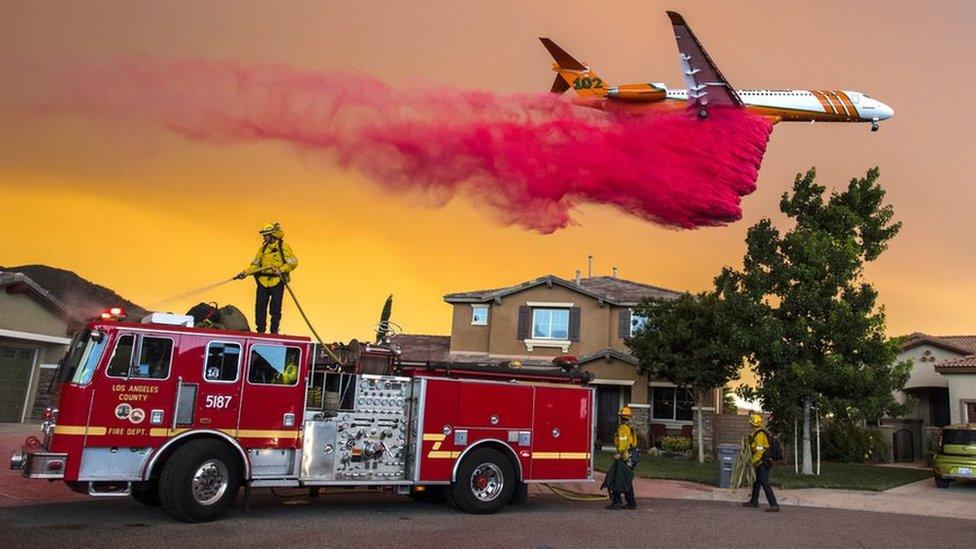Australia fires: Troops called to tackle fires
- Published
The BBC's Phil Mercer witnessed a dust storm "coming towards us like a monster"
Australian Prime Minister Scott Morrison has announced 3,000 reserve troops will be deployed to help tackle raging bushfires across the country.
Defence Minister Linda Reynolds said this is the first time this had happened in Australia's history.
Temperatures surpassed 40C (104F) in parts of south-east Australia on Saturday as fires ravaged through homes and land.
Since September, the fires in Australia have killed at least 23 people.
Dozens of people are missing and some 1,500 homes have already been lost this fire season.
"We have seen this disaster escalate to an entirely new level," Mr Morrison told reporters at a press conference on Saturday.
What happened on Saturday?
Skies reddened and darkened in areas of south-eastern Australia as wind gusts exacerbated the fires.
Emergency warnings were issued throughout the day urging residents to leave certain areas.
In some places, including the Snowy Mountains, people were told it was too late to evacuate. They were instructed to shelter indoors or in a large clearing or body of water.
Allow X content?
This article contains content provided by X. We ask for your permission before anything is loaded, as they may be using cookies and other technologies. You may want to read X’s cookie policy, external and privacy policy, external before accepting. To view this content choose ‘accept and continue’.
In Victoria, three fires converged overnight into a 6,000-hectare blaze.
By the end of the day, 73 new fires had started and 53 were still burning. Of these, 13 were classed as emergency fires.
Authorities said 900,000 hectares (2.2m acres) were burnt out, according to ABC News. , external
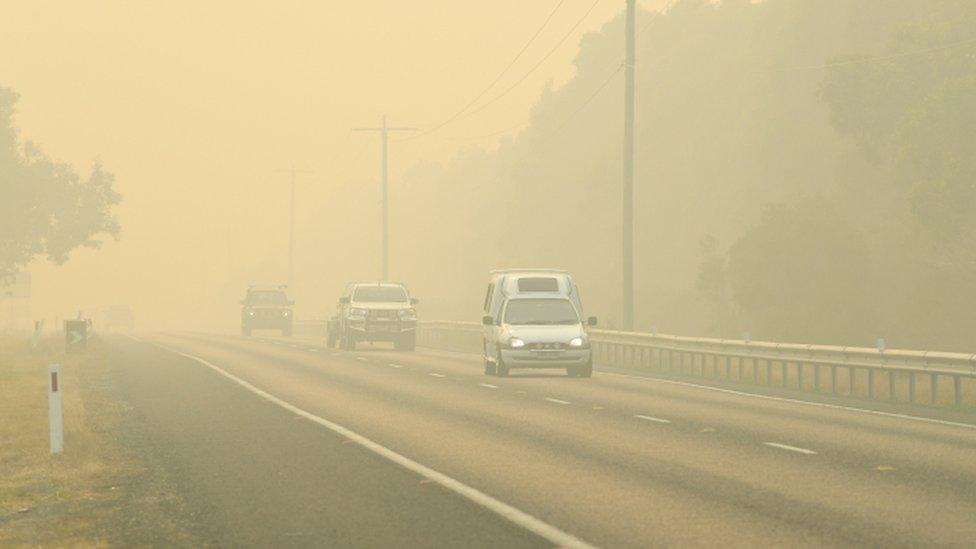
Victoria has declared a state of disaster as bushfires continue to burn across the state
In some good news, the number of people reported unaccounted for in the state reduced from 28 to six.
In New South Wales (NSW), about 100 fires are currently burning.
According to the Rural Fire Service Commissioner Shane Fitzsimmons, more than half are not contained.
He said earlier in the day that Saturday would be "a long and difficult day for everybody".
Several power lines went down in Snowy Region and residents were urged to reduce unnecessary electricity usage.
Phone lines are down in some areas of the state, according to 9 News.
Tens of thousands of properties lost power in Batemans Bay and Moruya region, although many of these were restored later in the day.
Fires on Kangaroo Island in the state of South Australia killed two people - a well-known pilot named Dick Lang and his son, Clayton.
A quarter of the island has been ravaged by fire. South Australia state premier Steven Marshall said much of Flinders Chase National Park had been "taken out" by bushfires.
Some footage showed bushfires generating their own weather systems, including tornadoes and thunderstorms.
Allow X content?
This article contains content provided by X. We ask for your permission before anything is loaded, as they may be using cookies and other technologies. You may want to read X’s cookie policy, external and privacy policy, external before accepting. To view this content choose ‘accept and continue’.
What is being done to fight the fires?
As well as deploying the military, Mr Morrison announced A$20m (£10m) had been allocated to lease four water bomber planes. Defence force bases would provide temporary accommodation, he said.
On Friday, the Australian navy evacuated some 1,000 tourists and residents who were trapped in the fire-ravaged town of Mallacoota on the Victoria coast.
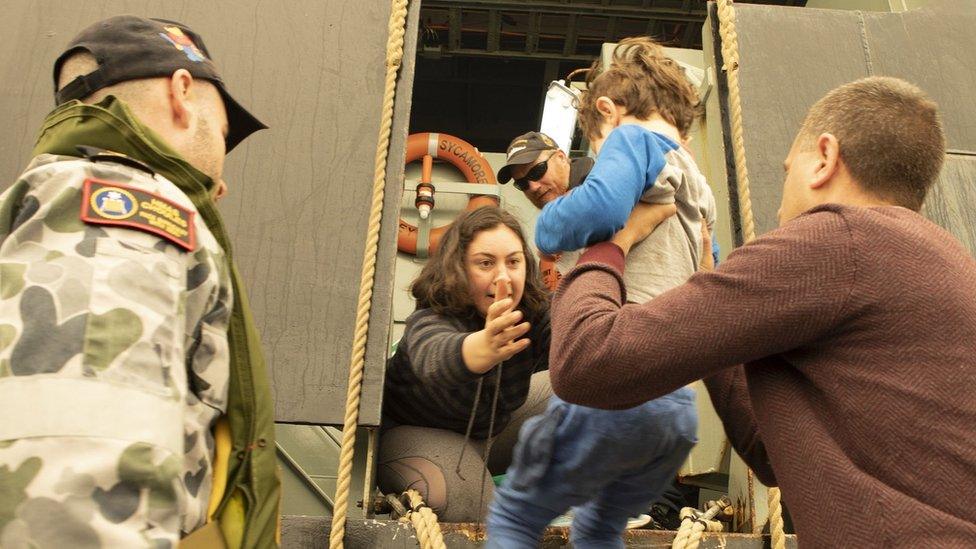
The Australian navy has already been helping with evacuations
The first evacuees arrived in the Mornington Peninsula on Saturday morning.
Another ship, HMAS Adelaide, will set sail from Sydney on Saturday and will be located offshore ready to evacuate citizens from the coast if needed.
Australia fires: The animals struggling in the crisis
NSW has declared a week-long state of emergency. Tens of thousands of residents and holidaymakers have been told to evacuate coastal areas, where a "tourist leave zone" has been declared.


Some 3,000 firefighters are on the ground in NSW, according to News.com.au.
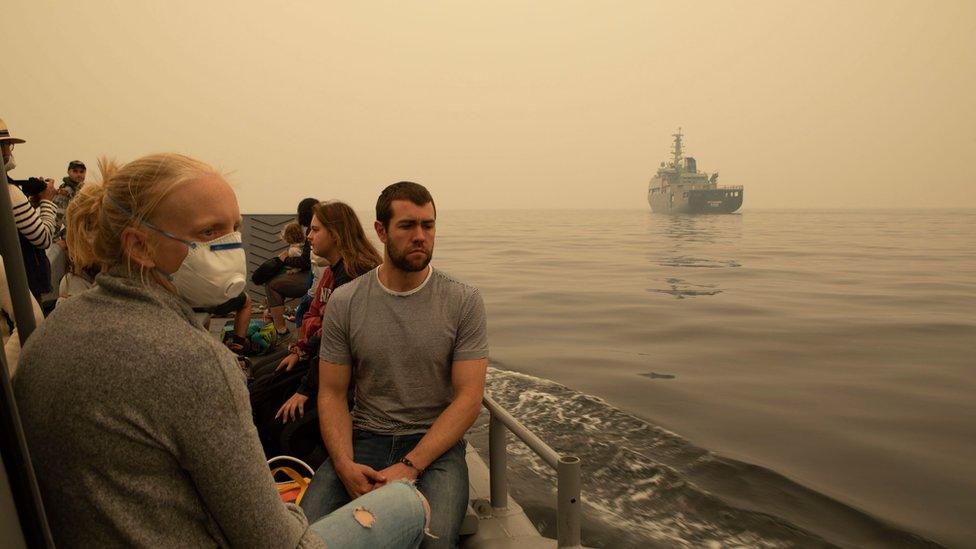
The first evacuees are beginning to arrive from Mallacoota
What's the background?
The fires in Australia began in September. In addition to the fatalities, they have so far destroyed more than 1,300 homes, as well as millions of acres of bushland.
Meteorologists say a climate system in the Indian Ocean, known as the dipole, is the main driver behind the extreme heat in Australia.
However, many parts of Australia have been in drought conditions, some for years, which has made it easier for the fires to spread and grow.
Prime Minister Scott Morrison has been criticised for his handling of the bushfires. He has faced persistent accusations of being too absent, including by taking a holiday to Hawaii, and underplaying the role of climate change.
During a news conference on Friday, he said he understood that people had "suffered a great lot" and were "feeling very raw".
More extreme heat forecast for Saturday

Have you been affected by the fires? If it is safe for you to do so you can get in touch by emailing haveyoursay@bbc.co.uk, external.
Please include a contact number if you are willing to speak to a BBC journalist. You can also contact us in the following ways:
WhatsApp: +44 7756 165803, external
Tweet: @BBC_HaveYourSay, external
Send pictures/video to yourpics@bbc.co.uk, external
Text an SMS or MMS to 61124 or +44 7624 800 100
Please read our terms of use and privacy policy
- Published4 January 2020
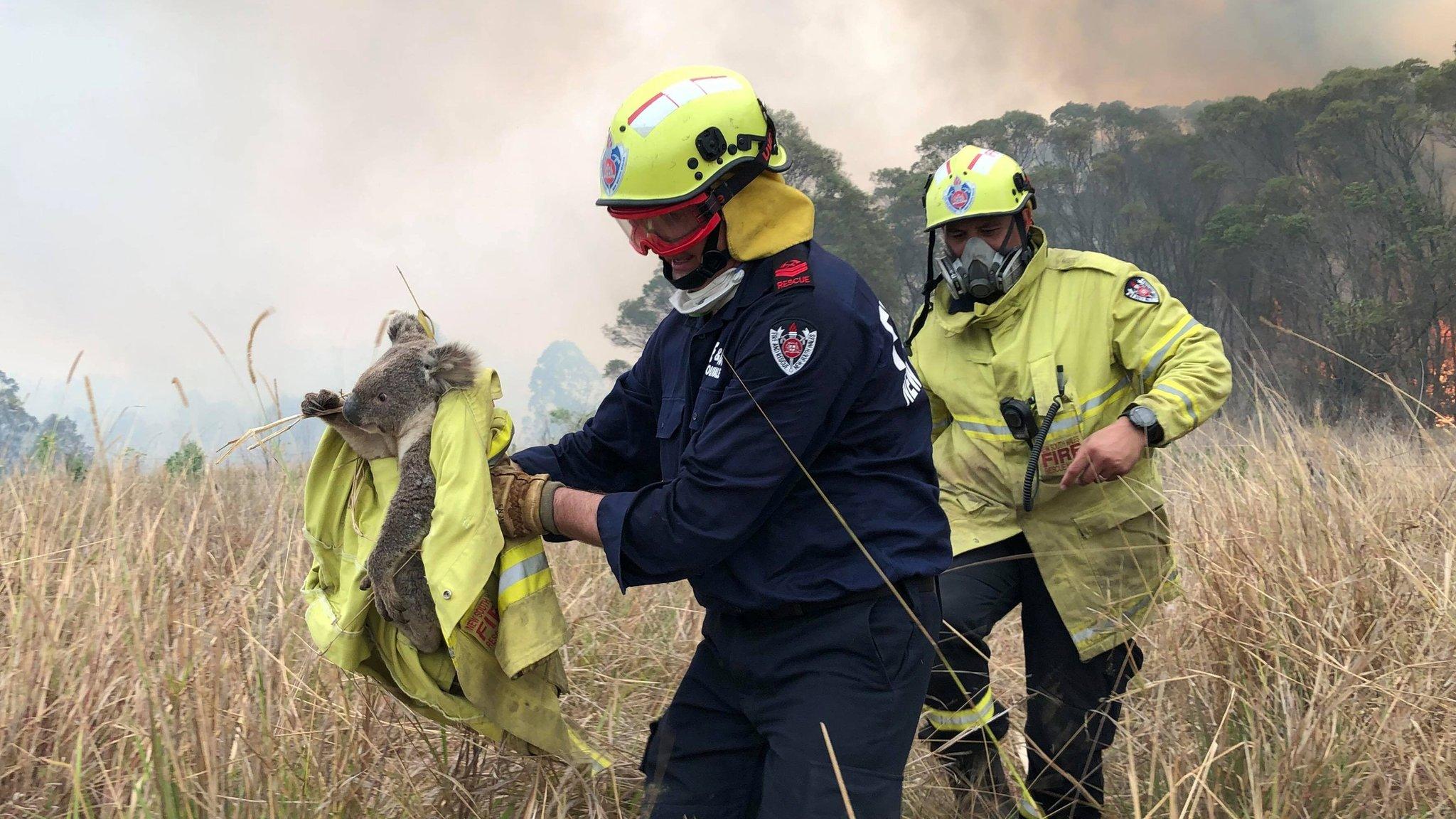
- Published4 January 2020
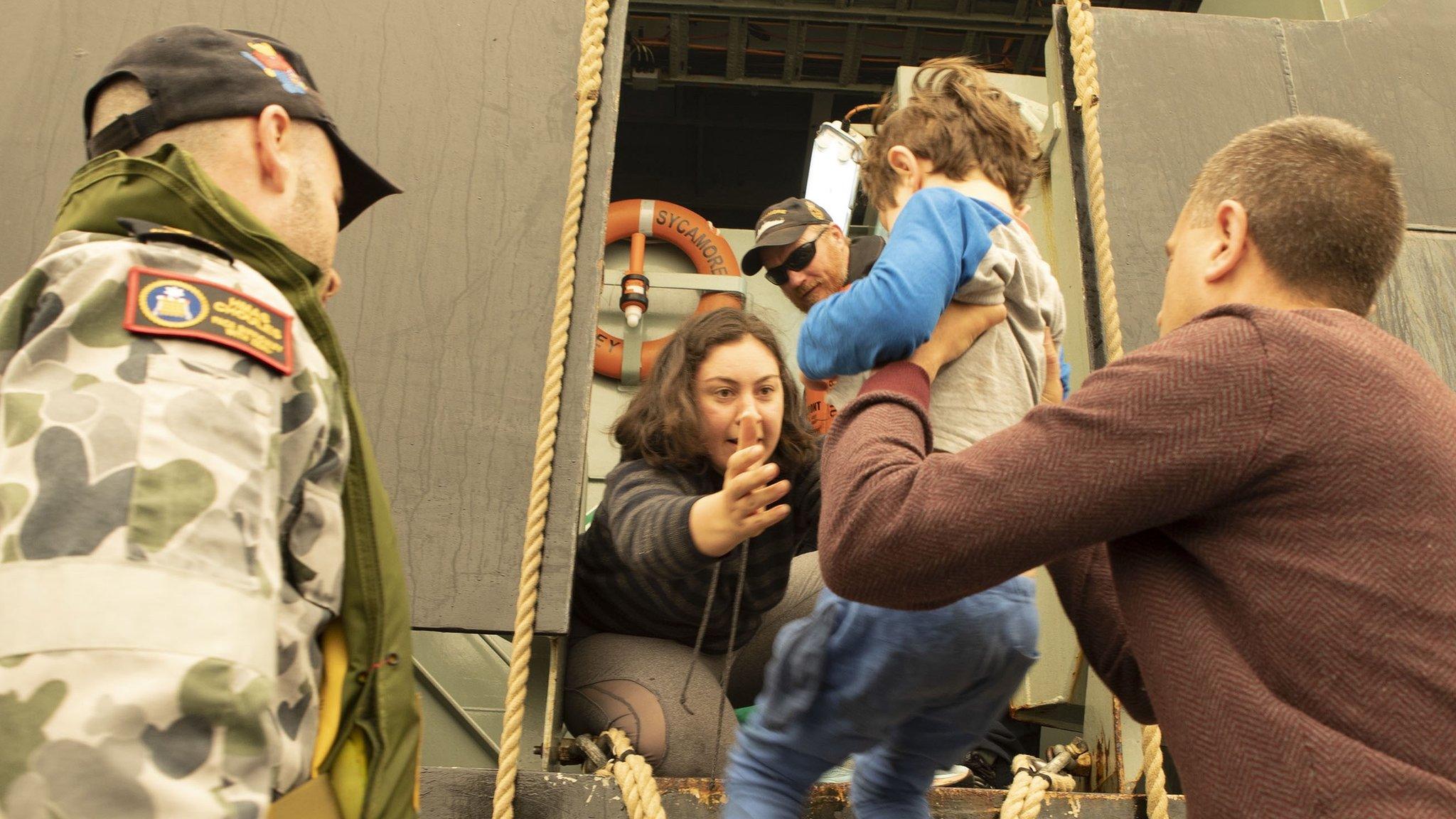
- Published7 January 2020
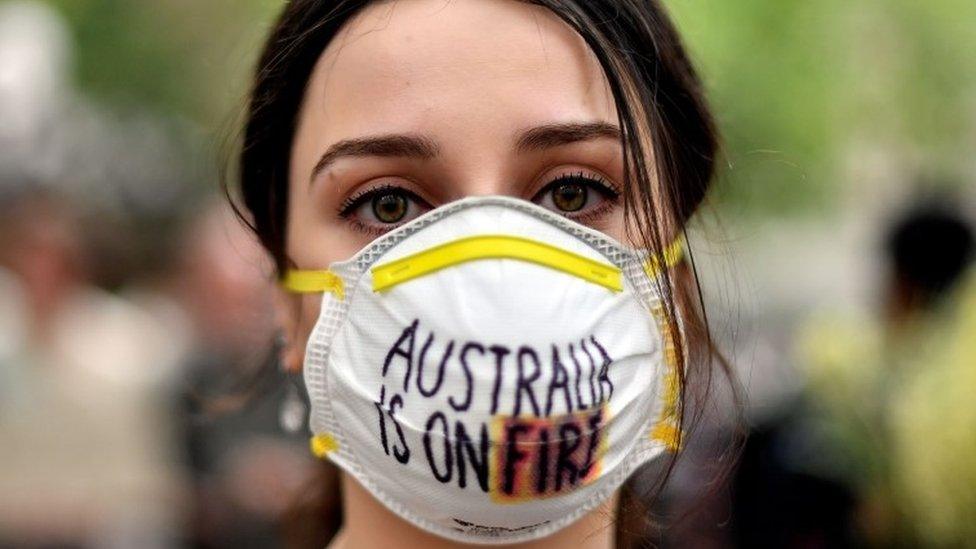
- Published31 January 2020
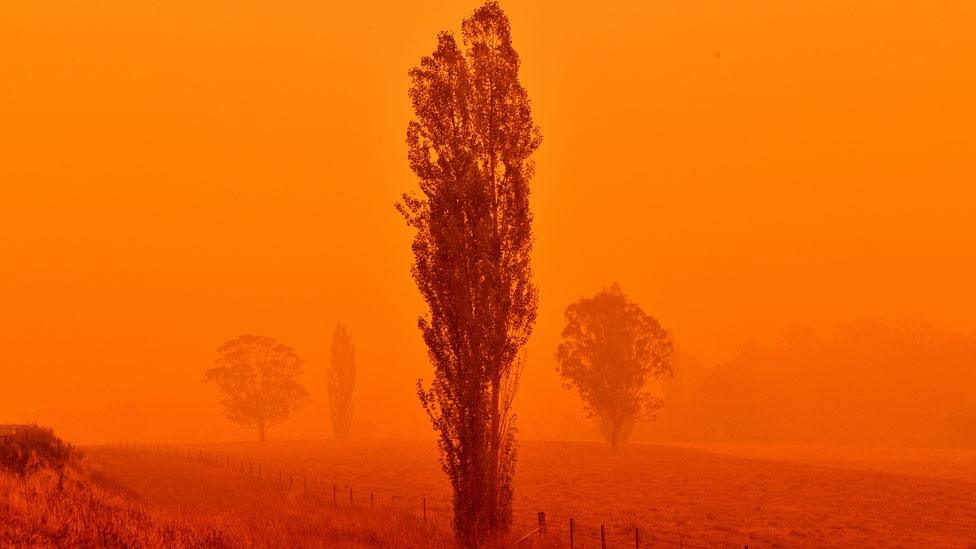
- Published17 November 2019
